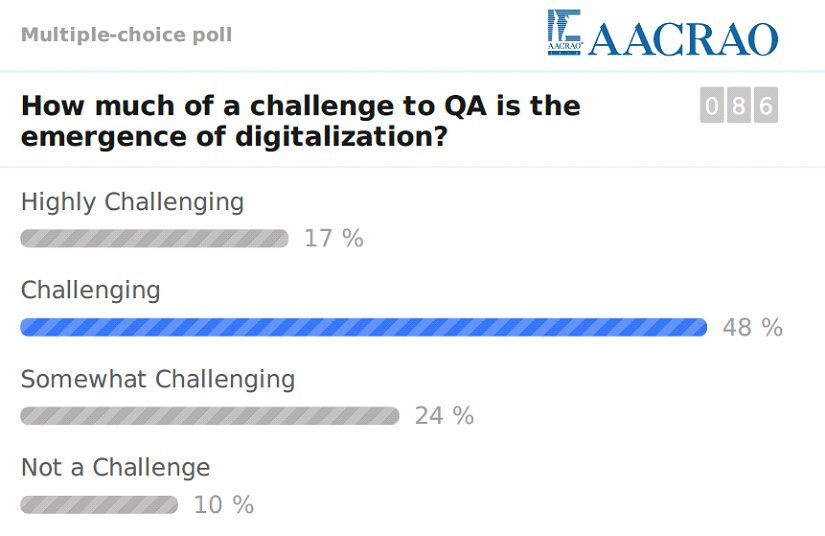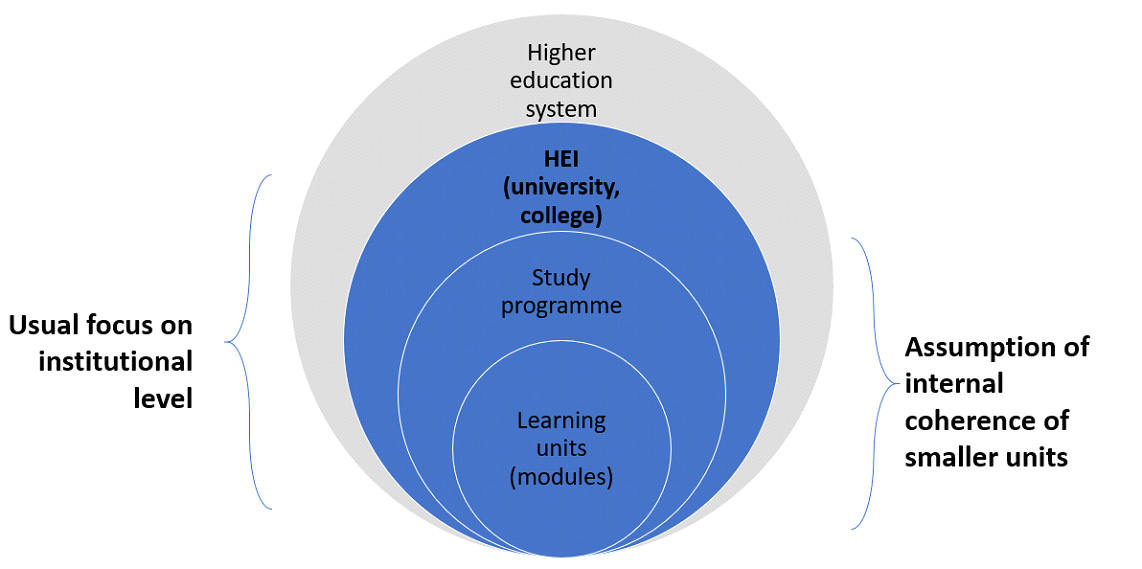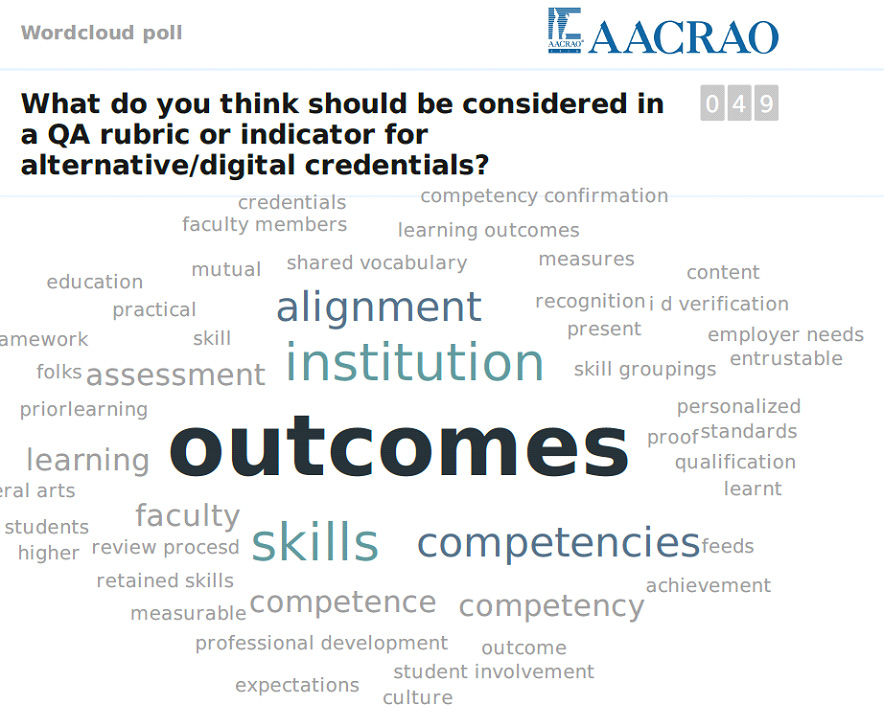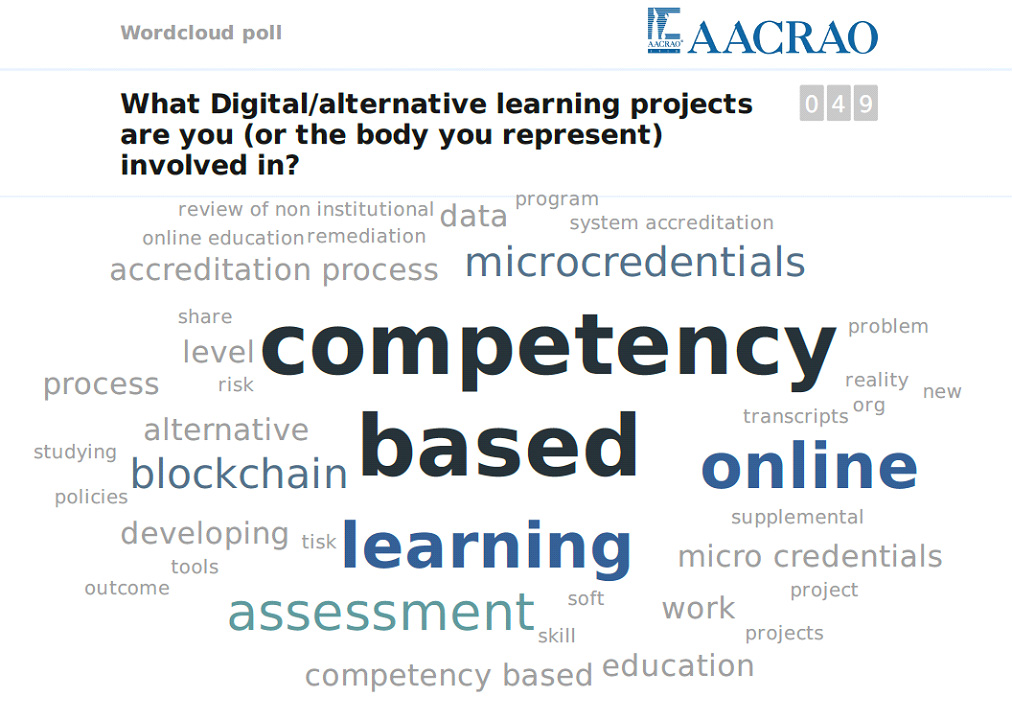 by Dominic Orr, freelance policy analyst, Germany, and Melanie Gottlieb, Deputy Director, AACRAO
by Dominic Orr, freelance policy analyst, Germany, and Melanie Gottlieb, Deputy Director, AACRAO
Over the past 20 years participation in higher education has been expanding rapidly across the globe, but also the expectations on higher education institutions to widen participation have increased, placing new demands on a more flexible and personal form of higher education provision. Higher education institutions (HEIs) hope to utilize the benefits of digitalization to better serve current students, and also to reach new student populations. So, like nearly every societal system currently, the tertiary education system is trying to find the optimal way to harness digital technology.
Quality assurance is a key element to higher education provision across the world. We see the higher education sector growing and all key stakeholders have one common question: with growth continuing and diversification of provision fueled by digitalization, what role can quality assurance play in ensuring standards? At the annual meeting of the Council for Higher Education Accreditation’s International Group (CIQG), we led a session which looked at this question from the perspective of current developments.
We started by asking the approximately 150 person strong audience (representing both American and international higher education institutions), how much of a challenge to quality assurance the emergence of digitalization really is. The response from the auditorium is shown below. The 86 respondents agreed that it is certainly a challenge, with around one third see it as “somewhat” or “not” a challenge – see Figure 1. This echoes discussions we have been having in Europe, where there is the idea that quality assurance procedures can, in principle also be applied to digital content, i.e. digitalization requires adaptation, but not total reform of quality assurance procedures.
Figure 1: Live audience response to survey, 31.1.2019

The problem for quality assurance procedures lies in the increasing importance of smaller units of learning and the possibility that these units are not all offered to a student from the same institution. Across the world the leading assumption behind most accreditation and quality assurance procedures (we assume for this blog that there is little difference between the two) is that they should focus on the institutional level. Further that there will be internal coherence in the teaching, learning and support structures around smaller units of learning such as study programs and modules – see Figure 2. To check this, as with financial audits, many procedures foresee audit trails to ensure that this is really the case.
Figure 2: The hierarchy of quality assurance / accreditation

It is for this reason that many in the field of quality assurance are working on initiatives, which place a stronger focus on the end results of learning (competency-based systems) – therefore reducing the need to police where learning actually happened – see Figure 3. A further development is to include the definition of good meta-data, which should be included in smaller units of learning (often termed micro-credentials). In Europe, the European Commission has produced a set of guidelines, which help ensure recognition of such smaller units of learning.
Figure 3: Live audience response to survey, 31.1.2019

Certainly, professionals in the field of quality assurance are challenged to update their procedures and systems in view of the diversifying student body and the diversity of higher education providers. But the responses from the audience gave reason to be sure that they have taken up this challenge – see Figure 4. We look forward to discussing these initiatives with providers and supporting them in their efforts to maintain trust in the higher education, which they provide.
Figure 4: Live audience response to survey, 31.1.2019
 Co-published at https://digimusingsblog.wordpress.com/
Co-published at https://digimusingsblog.wordpress.com/